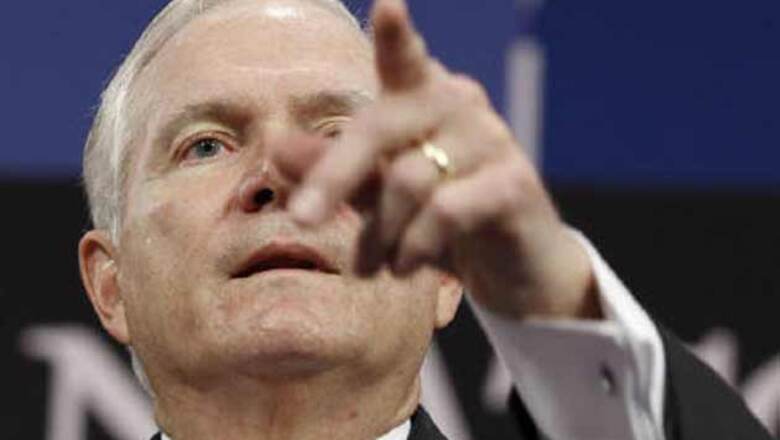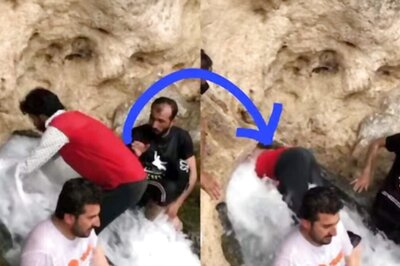
views
Washington: The unprecedented leak of secret US military reports on the Afghan war may cost lives and damage trust with allies, the Pentagon said on Thursday, warning publisher WikiLeaks could have blood on its hands.
An Army intelligence officer, already under arrest, is at the center of an investigation into the leak of more than 90,000 secret military records to whistle-blower website WikiLeaks, US officials have said.
Defense Secretary Robert Gates declined to comment on the probe but said he could not rule out more leaks of classified information. He also announced plans to tighten access to sensitive intelligence data.
"I don't know whether there is anyone else out there that is a party to this," Gates said at the Pentagon in his first public comments since Sunday's publication of the documents.
Admiral Mike Mullen, who as chairman of the Joint Chiefs of Staff is the top US military officer, lashed out at WikiLeaks' founder Julian Assange, who says he publishes documents to expose corporate and government corruption.
"Mr Assange can say whatever he likes about the greater good he thinks he and his source are doing," Mullen said.
"But the truth is they might already have on their hands the blood of some young soldier or that of an Afghan family."
Gates declined to comment on whether the investigation would be broadened to include WikiLeaks itself. He said the FBI would assist the Army in the investigation.
"The investigation should go wherever it needs to go, and one of the reasons that I asked the director of the FBI to partner with us in this is to ensure that it can go wherever it needs to go," Gates said.
President Barack Obama and military top brass have played down any revelations from the leaked documents, which have fanned doubts in Washington amid growing impatience with the unpopular and costly nine-year-old war.
June was the deadliest month for foreign troops since the start of the conflict in 2001 and U.S. officials warn they expect casualties will keep rising over the summer.
Trust matters
Obama met his national security team at the White House on Thursday and officials said the WikiLeaks case was discussed.
Gates, a former CIA director, told reporters his biggest concern was that Afghans and other allies would no longer trust the United States to keep their secrets safe.
"It is amazing how much trust matters," Gates said. "We have considerable repair work to do."
The documents also threw an uncomfortable spotlight on Pakistan's Inter-Services Intelligence agency links to insurgents who oppose US troops in neighboring Afghanistan.
Mullen acknowledged some ties remained but said Islamabad was "strategically shifting" against insurgents.
"There have been elements of the ISI that have ... a relationship with extremist organizations and that we, you know, we consider that unacceptable. In the long run I think that the ISI has to strategically shift," he said.
"And they are strategically shifting. That doesn't mean that they are through that shift at all."
Obama announced in December an additional 30,000 troops to fight the war and said he also intended to start pulling out U.S. forces from Afghanistan from July 2011 as long as the right conditions existed.
Laying down a specific timeline has irked some allies. Critics say it has emboldened the Taliban to wait out a U.S. departure, despite insistence by US officials that their support for Kabul was long-term.
Vice President Joe Biden said US forces were not in Afghanistan for "nation-building" and reminded a skeptical public that the sole purpose of the Afghan war was to defeat al-Qaeda, blamed for the 2001 attacks against the United States.
"We are in Afghanistan for one express purpose ... the al Qaeda that exists in those mountains between Afghanistan and Pakistan," he said in an interview with NBC's Today show.
"We are not there to nation-build. We are not out there deciding we are going to turn this into a Jeffersonian democracy and build that country. We made it clear, we are not there for 10 years," he said.




















Comments
0 comment